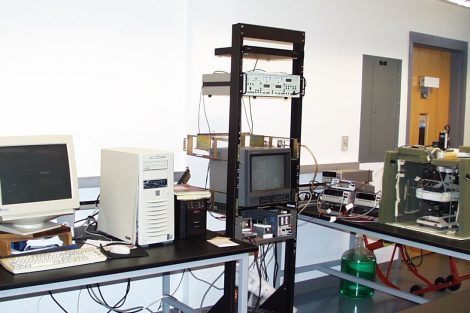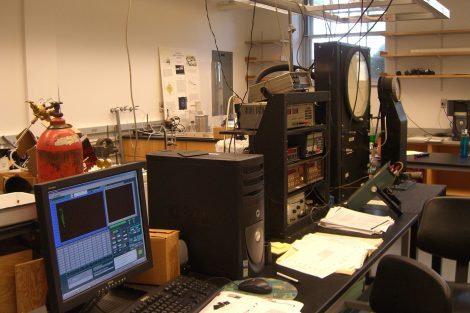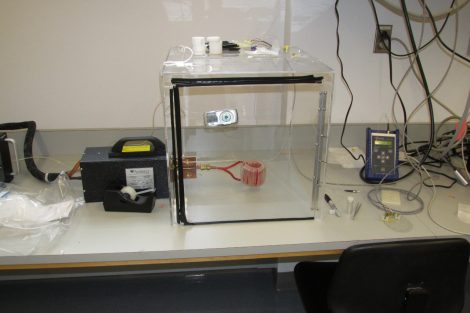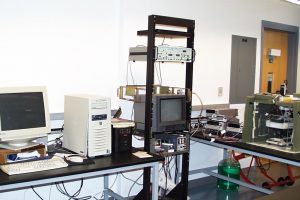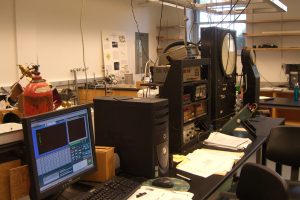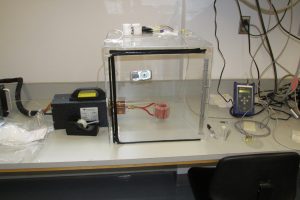Facilities
Lafayette maintains outstanding facilities for instructional laboratories in physics.
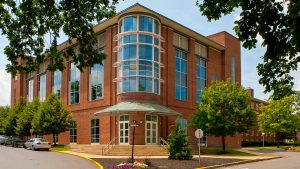
Hugel Science Center
Teaching Facilities
The introductory laboratory rooms contain twenty-eight microcomputers interfaced to the Vernier LoggerPro data acquisition system. Students get hands-on experience with experiments in all the major areas of introductory physics, including mechanics, thermodynamics, oscillations and waves, electricity and magnetism, and optics.
The intermediate and advanced classes have dedicated general-purpose laboratory space. There is also an optics lab equipped with optical tables and research-grade optical components. All laboratories have extensive computing support, and LabView programming is used to interface computers to experimental apparatus.
Advanced Physics Laboratory
In the Advanced Physics Laboratory, students have access to:
- a HORIBA Jobin Yvon SPEX 1250M 1.25-meter research-grade spectrometer for high resolution optical spectroscopy
- a high-vacuum system with a residual gas analyzer for mass spectroscopy
- a NaI scintillation detector with a Canberra DSA-1000 Multichannel analyzer for nuclear spectroscopy
- a 185 mW 405 nm laser and β-barium borate (BBO) crystal for single-photon quantum optics experiments
- two external-cavity diode lasers offering tunable narrow-band light for state-of-the-art experiments in nonlinear spectroscopy
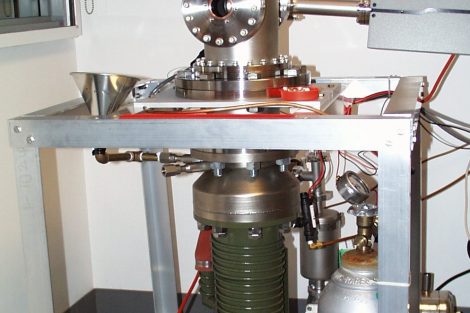
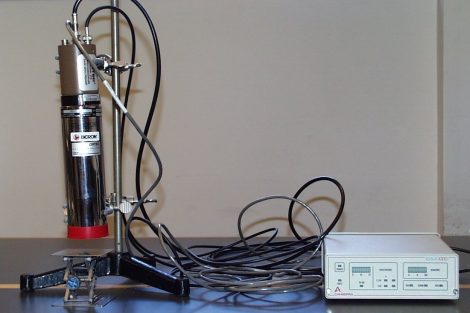
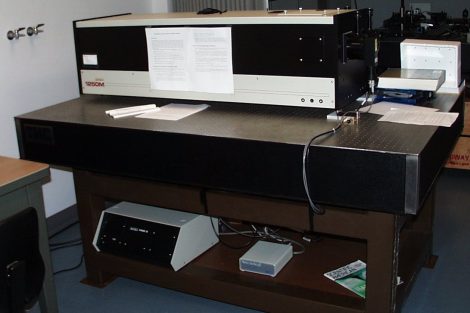
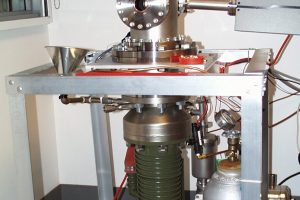
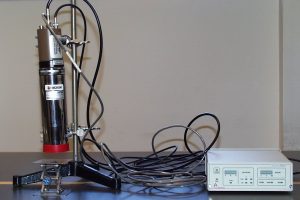
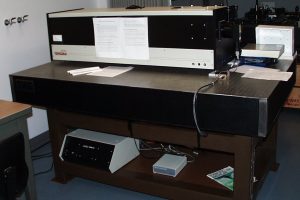
Astronomy Facilities
Astronomy facilities described under Astronomy Observations are available to students as part of the Physics 304: Observational Astronomy class and for their own observations.
Computing Facilities
The college has a high-performance computing cluster called Firebird, which is currently used for astronomy research by faculty and students.
The department also has computing facilities which are available to physics students at all times for class work and research projects. The Computational Physics Laboratory houses a cluster of Linux computers and several Windows computers.
Research Facilities
Student participation in research is an important part of the physics program at Lafayette. There are a variety of opportunities, during the academic year as well as during the summer and Interim session, to become involved in a significant way in a research project.
- Zoe Boekelheide operates a laboratory to characterize magnetic nanoparticles.
- Andy Dougherty operates a high pressure laboratory, in which phase transitions of liquids and plastic solids can be measured at pressures up to four thousand atmospheres.
- Andy Dougherty also has a digital image processing system to control and study instabilities and pattern formation in crystal growth.
- Stephanie Douglas studies stellar rotation and binary star systems, primarily using the college’s HPC cluster.
- David Nice, as part of the NANOGrav collaboration, studies radio pulsars to detect gravitational wave signals.
The Physics Department, in cooperation with the Chemistry Department operates a Nuclear Magnetic Resonance spectrometer for biophysics (and other) research. Physics faculty were also part of the proposal to bring a Scanning Electron Microscope to campus in 2022.
